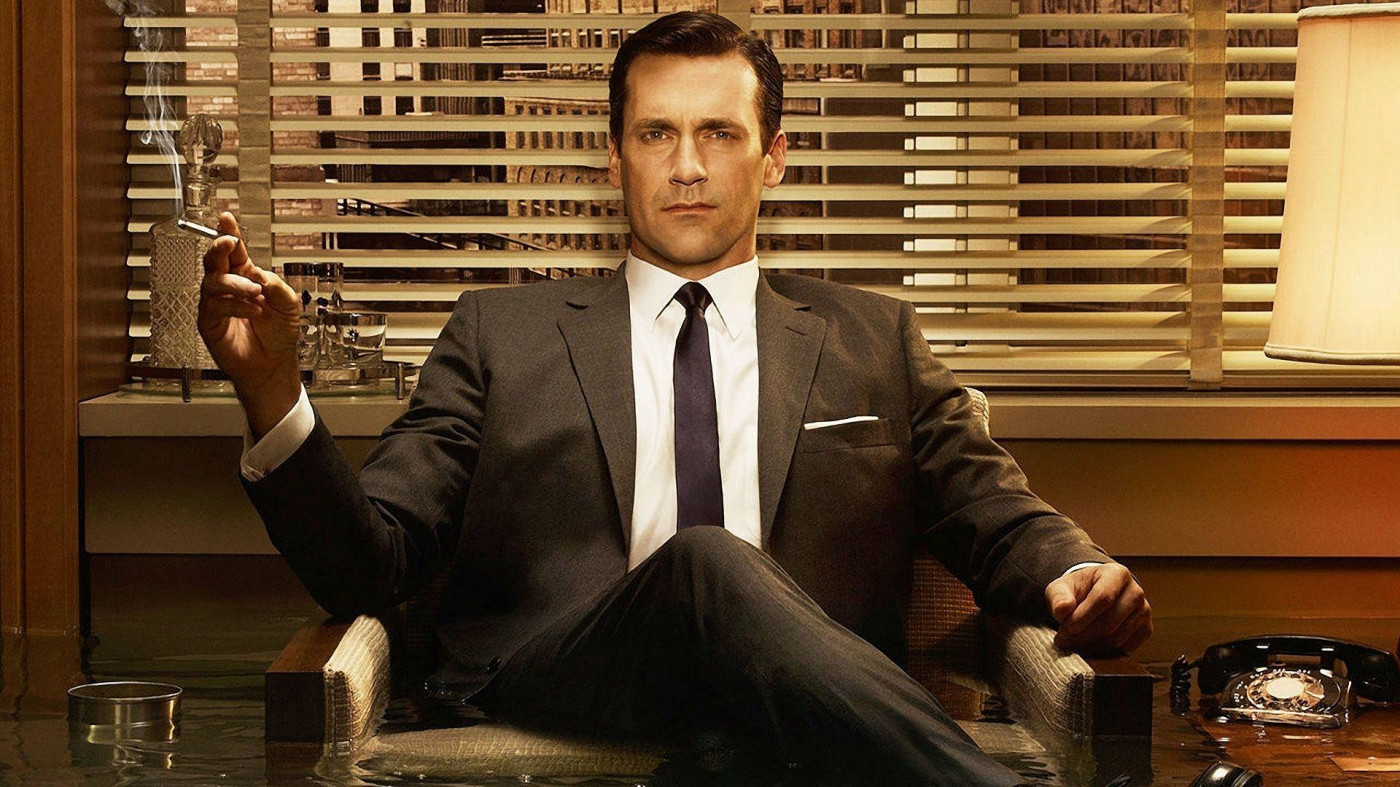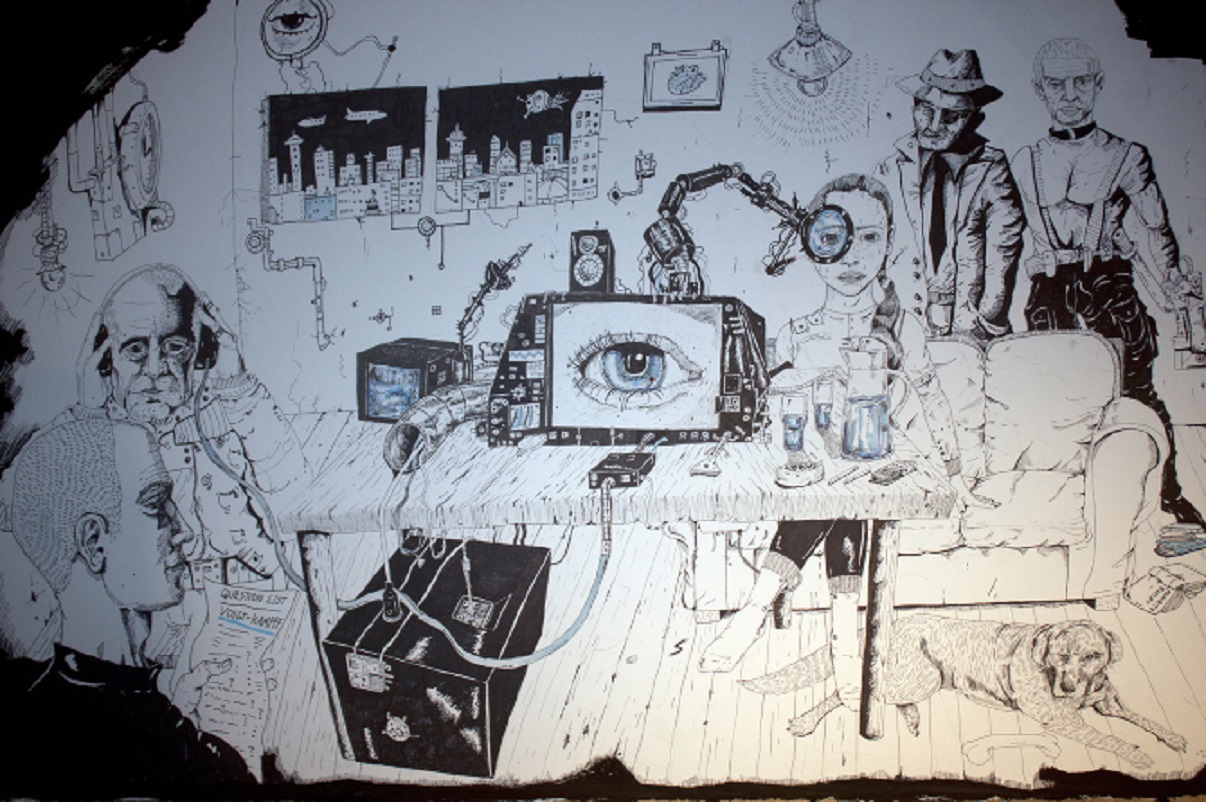What is this thing called ‘happiness’? We recognize it when we see it alright but we nevertheless have no end of misleading ideas about it. We are full of erroneous ideas about happiness. All of the ‘misleading or erroneous ideas’ that we’re talking about come down to the one idea really and this is the idea that happiness comes about as a result of a specially-advantageous type of relationship that we can have with the world, or with certain things (or people) in the world. If we find this special relationship – whatever it is, whatever it entails – then the result, we think, will be our happiness. This belief fuels most of our activity, most of the stuff we get up to. On the basis of the assumption that we have just outlined we are constantly manoeuvring around in all sorts of complicated ways trying to find this especially favourable relationship with the world. We are eternally looking for the right approach, the right angle, eternally trading secrets on what this approach or angle might be…
When it comes to finding happiness however all of this activity, all of this ‘jockeying for the advantageous position’ is quite useless. It never bears any fruit. This ceaseless manoeuvring of ours never bears any fruit because our ‘key assumption’ is entirely wrong – happiness does not come about as a result of any special relationship that we might have with the world or with certain things (or people) within it. There is no such thing as ‘the right angle’, no such thing as the correctly advantageous position or approach to take with regard to the world. It’s not about anything specific that we do, therefore. There is no key sequence of behaviour, no ‘recipe’, no ‘gimmick’. Or as we could also say, happiness does not come about as a result of pursuing and obtaining goals.
And yet just about all we ever do is run around pursuing goals! We’re goal-crazy – we think it’s fantastic to be striving after our goals the whole time and we never get tired of going on about it. According to our culture the pursuit of goals is the ultimate form of self-empowerment; presumably – therefore – we are convinced that this is the way to become happy, despite the fact that there is precious little evidence to support such a theory. The only other possibility (apart from the conjecture that our belief is that chasing goals is the route to happiness) is that happiness isn’t actually of number one importance to us, even though we say it is. It could be that there is something that is more important to us than happiness, which would explain our constant preoccupation with formulating and obtaining goals. So the question is, what do we get out of goal-orientated behaviour if it isn’t happiness?
The psychologically naïve view is to say that when we obtain our designated goals then we will be happy, but anyone with any degree of insight into human nature would see that the truth of the matter is very different – the truth is that it’s actually power that we are after rather than happiness. That’s why the world is the way that it is! If I can get what I want then I am by definition powerful – my sense of myself has been enhanced, augmented, exalted. This is the reason talk of success and victory excites us so much – because I know that if I am successful (at whatever it is that I am successful at) then the sense that I have of myself as ‘an effective agent’ is going to be enhanced. All power play, all games, have this feeling as their aim – to win is to be a powerful self whilst to lose is to be an ineffectual one. One way we get to feel good about ourselves, the other way not so good at all. if we lose at the game, if we get bested in the competition, then instead of coming out of the contest covered in glory we come out with tainted with shame. There is not just ‘no kudos in losing’, there is negative kudos.
Kudos has nothing to do with happiness, however. Kudos is how we prove ourselves, both to others and to ourselves, in a world where everyone is a loser unless they can demonstrate otherwise. Kudos is the result of successful self-validation and the very fact that there has to be some sort of validation going on means that there must be an underlying sense of invalidity that needs to be fought against. It hardly needs to be said that this situation where there is the constant need for us to fight against an underlying feeling of ‘not being good enough’ can never give rise to happiness – if I don’t succeed we’re hardly going to be happy and if we do we’re not happy either because all we’ve done is to obtain a good feeling by (temporarily) pushing away a bad one! Happiness can never come about as a result of engaging in games – success can but success is a purely conditioned state. Saying that a state of being is ‘conditioned’ means it is both dependent upon precise management of circumstances and necessarily temporary (since the circumstances or conditions required cannot be maintained indefinitely). Very clearly therefore, there is nothing at all ‘happy’ about this state of affairs” – what we’re talking about here is actually a state of suffering, not happiness!
All we’ve done when we obtain kudos is that we have temporarily over-turned this omnipresent feeling of not being good enough, not being worthwhile, not being anyone who is ever going to be taken seriously. We have won conditional state of being for ourselves but this state of conditional being needs to be carefully maintained or guarded. The reason it needs to be carefully maintained or guarded is because it’s not actually real – it’s a highly precarious fiction that we have to defend every step of the way! We have theatrical triumph on the one hand and an equally theatrical ‘flop’ on the other, but what do either of these have to do with happiness? If anyone were to suggest to you that the route to happiness is by successfully defending and promoting a highly precarious fictional account of ourselves (that we can’t ever allow ourselves to see as a fiction) we are hardly going to be convinced, and yet this (in a suitably disguised format) is the ‘formula for happiness’ that society sells us ever day! Society sells us this formula, this recipe, and we buy it…
Knowing what happiness isn’t is the only way we have of knowing about it – if we were to think that happiness is this or that then we would have made it into an object of the mind and then we would be able to make a goal of it. If we make a goal of happiness we turn it straightaway into a conditioned state of being and as we have just said all conditioned states of being are suffering! To have an idea or theory or belief about happiness is an infallible recipe for creating misery, therefore. We only ever talk about happiness anyway, as we have said. It’s really power that we’re after because in the conditioned realm power is the only thing that counts. Power is the currency. On the face of it power is all about being able to bring about the outcomes that we want to bring about but ‘getting what we want’ is only a means to an end, and the end in question is a positive view of ourselves rather than a negative view. Being able to get my own way affirms my conditioned sense of identity – it is a way of feeling that I exist, that I am actually somebody rather than just a nobody. I get to feel good about myself because I am a successful controller, because I say what happens rather than you. This is like having the last word in the argument – having the last word in an argument affirms the ego, it gets to be on the top of the dung heap rather than at the bottom. I am playing a game in order to (hopefully) feel good about myself – there is a TOP and a BOTTOM and I am (of course) hoping to come out ‘on top’ rather than finding myself ‘at the bottom’.
So it is all about how the self feels about itself. Am I covered in glory or shame? Am I a winner self or a loser self? There is a knife edge between the two and because of this there is always insecurity. There is always anxiety in a game, not matter how confident we may feel. Confidence in a game is only repressed anxiety anyway, just as the manic elation of winning is only ever the denial of despair, as Johannes Fabricius points out. This ‘knife-edge’ of which we speak is actually nothing other than the self; victory/defeat, satisfaction/dissatisfaction, pleasure/pain, UP/DOWN – all of this just means ‘the self’. The self is a polarity in other words; it is a polarity that likes to imagine that it can one day divest itself of the ‘undesired pole’ and tries all the time to do so! Seeing this – seeing the necessarily polar nature of the self – allows us to get away from the notion that happiness has anything to do with the self, that happiness is in some way a potential quality or property or attainment of the self…
In order to get any closer to a true understanding of ‘what this thing called happiness’ is we have to totally abandon the idea that it has anything whatsoever to do with the self. That idea has to be let go once and for all! Wherever there is happiness the one thing we know for sure is that it did not come about because of the activities of the self. We can know for sure that it did not come about because someone had a goal to be happy which they have relentlessly pursued, or because someone has hit upon a clever trick, a new, improved way of bringing about happiness. Actually, the reverse is true. If the self is involved at all then there will be no trace of happiness – where the self is in play with all its cleverness, all its trickiness, all of its cunning, there is never going to be any happiness.
The self is – when it comes down to it – the complete absence of happiness. It is a happiness vacuole’; it is an isolated pocket of ‘a deficit in happiness’. Looking at this the other way around, we can also say that happiness is the complete absence of the self. No wonder, therefore, that no one is genuinely concerned with increasing the amount of peace and joy in the world – that can only be achieved at the expense of the self, not on its behalf. It is no wonder at all that we have quietly opted to forget about happiness and concentrate on acquiring power instead. It can hardly be doubted that this is the case; it is very evident indeed that the world is concerned with one thing and one thing only – that ‘one thing’ being the pursuit of power. When power is all we care about any possibility of happiness goes straight out of the window; as we have already said, we’re not going to be happy no matter what happens – if we lose we’re going is be miserable and if we win we’re still going to be miserable. When happiness does arise it is going to be purely by accident – the thinking / controlling mind has taken its eye of the ball and happiness popped up because the controller wasn’t there to spoil it! Happiness is actually all around us but we drive it away with our cleverness. We have designed a clever, clever world for ourselves – a world with absolutely no happiness in it! Happiness isn’t part of the plan…
Happiness is such a strange thing. It takes no effort at all to obtain it – it comes freely, all by itself – and yet at the same time it is such a rare visitor. It visits children easily but the older we get the rarer such visits get. As adults we are too much under the control of the planning, scheming mind with all its never-ending cleverness. There aren’t any gaps in the fence through which the happiness can enter – we have it all sealed off. We’re too smart for our own good. This might seem like a somewhat controversial statement but probably we all know very well that it is true. The social life is a charade and the only happiness it contains is of the theatrical variety. True happiness is so easily spotted however – we have an unerring instinct for it. Happiness has no guile, it can be readily seen on peoples’ faces if we have eyes to see it. It is a type of softness, a type of gentleness; like sadness, it is a profoundly moving quality of ‘being present’. If we go out on the streets and pay attention to all the faces we see then what we notice (in the Western world, at least) is just how rare this quality actually is.
Happiness – we might say – is the touch of another world. It is the touch of a world that has nothing to do with the prosaic world we know and spend almost all of our lives in. It is the touch of a world that we have not just forgotten, but forgotten so completely that we no longer have the capacity to remember it. It’s not just that we lack the referents for this forgotten world – there are no referents for it! There are no referents for this world because it is the real world we are talking about here and there are no referents for reality. There is no connection between the world of our thoughts and actual reality; the thinking mind provides us with no bridge, no porthole to look out of. The thinking mind ignores nothing as much as it ignores the reality from which it itself (along with everything else) springs out of! As is the thinking mind’s attitude so is ours and so our attitude to unconditioned reality is also one of the most profound indifference. We’re really not interested at all. We’re only interested in what the thinking mind has to say with regard to those things that might benefit us, we only care about the prepackaged information that it provides us with – information that might give us with some sort of critical advantage in the game we’re playing.
It is precisely because we are always looking for the advantage that happiness is such a stranger in our lives. ‘Happiness’ isn’t an advantage at all! Happiness has nothing to do with either advantage or disadvantage, good or bad, right or wrong. What could happiness have to do with goals or advantages? Happiness is to do with reality and there is nothing in reality that could ever be of the slightest advantage to us, strange as it might sound to say that. That’s why reality is of no interest to us. That’s why we are so profoundly indifferent to unconditioned reality. There’s happiness in it to be sure, but it’s not something that can ever be owned or controlled by us. It can never be our happiness and so we place no value in it!
Art: Yue Minjun, Between Men and Animal.







Rashid Dossett
Self-validation… The big trap we never see for what it really is… Because we we crave the fake honey it provides us…
I’ve been talking a lot about the error of self validation lately in my YouTube channel… And then you post this. Good timing!
zach alan
Thanks Nick for all these great essays! I really enjoy them!
Zach.